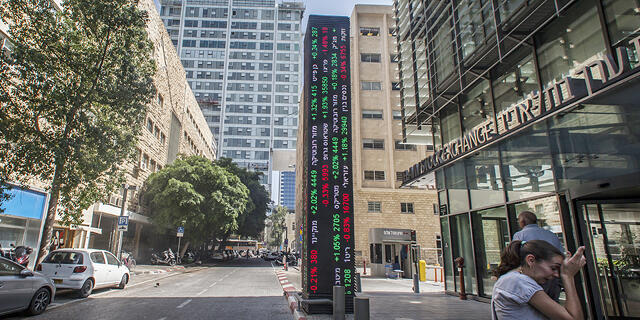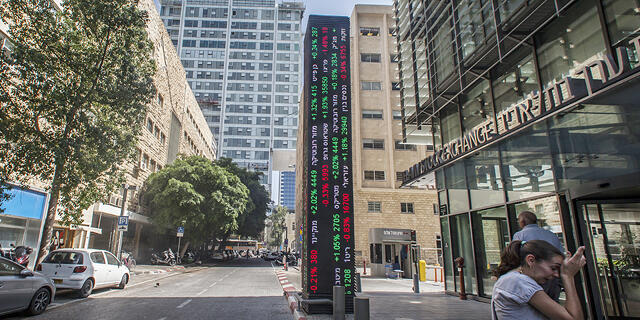
Institutional investors move over $8 billion out of Israel in first six months of 2023
Local investors are also seeking opportunities in struggling companies, with Klirmark Capital raising NIS 2.7 billion from Israeli institutions for that purpose
Institutional investors have transferred about NIS 30 billion ($8.1 billion) outside of Israel during the first half of the year. This comes amidst Israel’s ongoing political unrest due to the government’s judicial overhaul, leading to significant underperformance of the local stock market compared to U.S. and European markets. The TA-35 and TA-90 indices declined by 2.7% and approximately 0.6%, respectively, while the global MSCI index rose by 14%.
The major insurance companies and investment funds which are responsible for managing the long-term savings of Israelis have opted to transfer these funds abroad in order to achieve maximum returns. It appears that the institutional bodies are preparing for the next stage, in which profits in the Israeli stock market are expected to be below average, and many Israeli companies will be in crisis due to the country’s political instability and high interest rates.
As part of this trend, Klirmark Capital has raised NIS 2.7 billion ($730 million) from Israeli institutions for struggling companies or, “special situations." Additionally, the fund also invests in the secondary market through private equity funds. This is the largest amount raised in the Israeli market, based only on local investors. Israeli private equity funds have raised larger amounts in the past but relied on foreign investors. Fimi Opportunity Funds, the largest private equity firm in Israel, raised $1.1 billion and $1.2 billion, respectively, in 2016 and 2020, and Fortissimo, led by Yuval Cohen, raised $1.2 billion at the end of 2021, but relied on funds from foreign investors. Among the institutions that invested in Klirmark Capital are Migdal Insurance which invested about NIS 500 million ($135 million), Clal Insurance with an estimated investment of NIS 300 million ($81 million), Meitav, Phoenix, Menora Mivtachim, Altshuler Shaham, and Amitim Pension Funds.
Raising money for the fund is, in essence, a commitment from institutions to transfer the money when called upon, as is customary in the private equity fund industry. The fund calls for the money only when there are specific deals on the table - allowing for the presentation of higher returns. Sometimes this practice poses challenges, since in times of crisis, institutions are less comfortable with parting with their funds. This is one of the concerns that VC funds are now facing in view of the rise in interest rates, which reduces the attractiveness of risky assets, especially in high-tech.
This is Klirmark’s fourth fund and mainly focuses on debt of distressed companies rather than acquiring them. Klirmark’s previous funds were established in 2008, 2014, and 2019, and have delivered double-digit annual returns (IRR) ranging between 14-20%.
"In today's world, outside of Israel, there aren't many opportunities. The market keeps growing, and institutions operate almost on a FOMO basis (Fear of missing out)," said a senior figure in an institutional body that invested in Klirmark’s new fund. "In Israel, it's the opposite. Everyone sees the economic vulnerability and is waiting for the impending crisis. If it does arrive, Klirmark’s fund is one of the best tools for capitalizing on the crisis because they are familiar with the local economy and have proven experience."
"High-interest rates create difficulties for companies, and distressed companies are Klirmark’s natural environment," explained a senior executive in the private equity fund industry. "Moreover, political or economic uncertainty serves opportunity funds well. The more market volatility, the better for them." For example, Klirmark’s third fund focused, among other things, on investing in Ukraine amid the war between Ukraine and Russia, which led to the suspension of trading on the Ukrainian stock exchange from February 2022. Prior to that, the fund held positions in banks in Turkey. Earlier this year, Klirmark offered its clients a loan due to the Silicon Valley Bank crisis. Klirmark offered up to 50% against the companies' deposits at the bank, which were in jeopardy following the crisis. The proposed loan amount reached $30 million.














